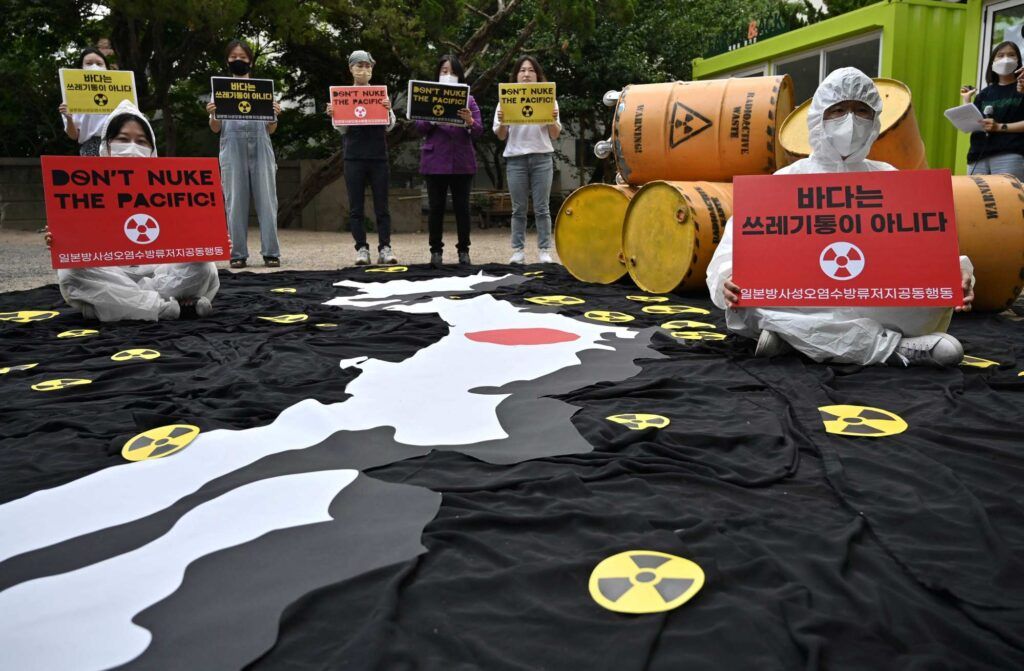The International Atomic Energy Agency (IAEA), has just approved a large Fukushima discharge into the Pacific Ocean and some of Japan’s neighbours are not happy.
The UN nuclear watchdog gave Japan the “greenlight” to dump over over 500 Olympic-sized swimming pools worth of ‘treated’ radioactive water from the crippled Fukushima plant into the ocean, saying the move was consistent with international safety standards.
But China, the biggest buyer of Japan’s seafood exports, is not happy with the plan which has also sparked concerns in Hong Kong.
Chinese customs and food safety regulators are warning against the move and are threatening to block seafood imports from Japan.
Natural News reports: The Fukushima disaster is not over.
Back on March 11, 2011, the Daiichi Nuclear Power Plant was struck by 15-meter tsunami from a catastrophic 9.0 earthquake. Immediately, eleven reactors at four nuclear power plants shut down. In the first three days, all three cores largely melted down, releasing radioactive material, especially through days 4-6. The three units were no longer able to maintain proper reactor cooling and water circulation functions, and their electrical switch gear was disabled. For weeks, operators worked to restore heat removal from the reactors.
All four Fukushima Daiichi reactors were decommissioned due to extensive damage from the meltdown. For years, the basic ongoing task was to prevent the release of radioactive materials, particularly in contaminated water that leaked from the three units.
The Fukushima controversy continues over a decade later
Over a decade later, “treated” radioactive water is set to be released directly form the Fukushima plant into the Pacific Ocean. Hong Kong’s Environment and Ecology Department is not on board with the decision. The Department head, Tse Chin-wan, issued a warning for Japan. If Japan discharged the “treated” water into the Pacific Ocean, Tse Chin-wan said China would ban all imported, frozen, refrigerated, and/or dried seafood products, including unprocessed or processed seaweed and sea salt. This impacts China’s supply of scallops, shrimp, tuna, and Japanese rice wine sake, all of which are popular staples in China. China is the largest buyer of Japan’s seafood exports, so the confrontation has enormous implications.
As Japan gets international approval to dump the treated radioactive water into the Pacific Ocean, Hong Kong warned that they will crack down on Japan’s seafood exports and ban products from a “large number” (10) of Japanese prefectures. China’s General Administration of Customs said the ban is to prevent “contaminated food” from hitting Chinese supermarkets. Chinese Customs lambasted IAEA’s report, claiming it “failed to fully reflect expert opinions” and that China will take “all necessary measures” to ensure that Chinese consumers are safe from radioactive waste.
Wang Wenbin, a Chinese Foreign Ministry spokesperson addressed the issue in a recent press briefing: “If some people think that the nuclear-contaminated water from Fukushima is safe to drink or swim in, we suggest that Japan save the nuclear-contaminated water for these people to drink or swim in instead of releasing it into the sea and causing widespread concerns internationally.”

